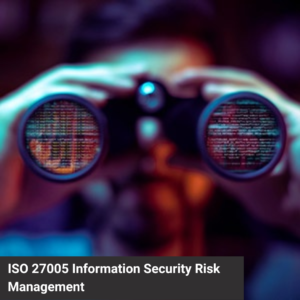What is ISO 14001?
ISO 14001 is a globally recognized standard that specifies the requirements for establishing, implementing, maintaining, and continually improving an environmental management system. It provides organizations with a structured framework to effectively address environmental obligations and enhance their environmental performance. Through effective planning, implementation, and performance evaluation, organizations can continually monitor their progress and take necessary actions to improve their environmental performance.
To ensure continual improvement, ISO 14001 follows the Plan-Do-Check-Act (PDCA) cycle. This cycle guides organizations in planning an EMS, implementing controls and processes, monitoring and evaluating EMS performance, and taking appropriate actions to continually improve the effectiveness of the EMS. By embracing the PDCA cycle, organizations can systematically enhance their environmental performance, meet environmental objectives, and maintain a sustainable approach to environmental management.

ISO 14001, Figure 1 — Relationship between PDCA and the framework of ISO 14001
Overall, ISO 14001 enables organizations, regardless of their type, size, or industry in which they operate, to demonstrate their commitment to environmental sustainability, comply with applicable environmental regulations, and achieve their environmental objectives. By integrating risk management, setting environmental objectives, and embracing the PDCA cycle, organizations can foster a culture of sustainability.
Why is ISO 14001 important for organizations?
Current environmental issues have become a challenge for organizations across various industries. Protecting the environment and responding to changing environmental conditions are essential to achieve sustainable development. Therefore, it is crucial for organizations to establish and maintain an effective EMS. By doing so, organizations demonstrate their commitment to environmental responsibility and effectively manage their environmental impact.
ISO 14001 provides a systematic approach for reducing ecological footprint and contributing to a healthier and more sustainable planet. An effective EMS helps organizations identify, manage, and minimize the negative impact on the environment. An EMS based on ISO 14001 helps organizations use resources efficiency, reduce waste, prevent pollution, and comply with environmental regulations. Additionally, it enables organizations to demonstrate their commitment to environmental responsibility and sustainability to interested parties, including customers, employees, and regulatory bodies. Compliance with the standard helps build trust and credibility, enhancing the organization’s reputation in the market.
ISO 14001 also emphasizes the need for continual monitoring, evaluation, and implementation of corrective actions, helping organizations to constantly enhance their environmental practices.
What are the benefits of an effective EMS based on ISO 14001?
An EMS based on ISO 14001 enables organizations to achieve environmental objectives. Specifically, it enables organizations to:
How to get started with this training?
Environmental management is essential for organizations aiming to contribute to sustainability and minimize their negative impact on the environment. It involves implementing strategies, processes, and controls to identify, assess, and manage environmental risks and opportunities. By proactively addressing issues such as pollution, resource consumption, waste, and energy consumption, organizations can contribute to the preservation of natural resources and help the planet. In this regard, ISO 14001 provides organizations with specific requirements for an environmental management system (EMS) that organizations can use to enhance their environmental performance, fulfill compliance obligations, and demonstrate their commitment to sustainability.
$ 450,00 – $ 1.250,00Price range: $ 450,00 through $ 1.250,00
Environmental management is essential for organizations aiming to contribute to sustainability and minimize their negative impact on the environment. It involves implementing strategies, processes, and controls to identify, assess, and manage environmental risks and opportunities. By proactively addressing issues such as pollution, resource consumption, waste, and energy consumption, organizations can contribute to the preservation of natural resources and help the planet. In this regard, ISO 14001 provides organizations with specific requirements for an environmental management system (EMS) that organizations can use to enhance their environmental performance, fulfill compliance obligations, and demonstrate their commitment to sustainability.
$ 450,00 – $ 1.250,00Price range: $ 450,00 through $ 1.250,00
What is ISO 14001?
ISO 14001 is a globally recognized standard that specifies the requirements for establishing, implementing, maintaining, and continually improving an environmental management system. It provides organizations with a structured framework to effectively address environmental obligations and enhance their environmental performance. Through effective planning, implementation, and performance evaluation, organizations can continually monitor their progress and take necessary actions to improve their environmental performance.
To ensure continual improvement, ISO 14001 follows the Plan-Do-Check-Act (PDCA) cycle. This cycle guides organizations in planning an EMS, implementing controls and processes, monitoring and evaluating EMS performance, and taking appropriate actions to continually improve the effectiveness of the EMS. By embracing the PDCA cycle, organizations can systematically enhance their environmental performance, meet environmental objectives, and maintain a sustainable approach to environmental management.

ISO 14001, Figure 1 — Relationship between PDCA and the framework of ISO 14001
Overall, ISO 14001 enables organizations, regardless of their type, size, or industry in which they operate, to demonstrate their commitment to environmental sustainability, comply with applicable environmental regulations, and achieve their environmental objectives. By integrating risk management, setting environmental objectives, and embracing the PDCA cycle, organizations can foster a culture of sustainability.
Why is ISO 14001 important for organizations?
Current environmental issues have become a challenge for organizations across various industries. Protecting the environment and responding to changing environmental conditions are essential to achieve sustainable development. Therefore, it is crucial for organizations to establish and maintain an effective EMS. By doing so, organizations demonstrate their commitment to environmental responsibility and effectively manage their environmental impact.
ISO 14001 provides a systematic approach for reducing ecological footprint and contributing to a healthier and more sustainable planet. An effective EMS helps organizations identify, manage, and minimize the negative impact on the environment. An EMS based on ISO 14001 helps organizations use resources efficiency, reduce waste, prevent pollution, and comply with environmental regulations. Additionally, it enables organizations to demonstrate their commitment to environmental responsibility and sustainability to interested parties, including customers, employees, and regulatory bodies. Compliance with the standard helps build trust and credibility, enhancing the organization’s reputation in the market.
ISO 14001 also emphasizes the need for continual monitoring, evaluation, and implementation of corrective actions, helping organizations to constantly enhance their environmental practices.
What are the benefits of an effective EMS based on ISO 14001?
An EMS based on ISO 14001 enables organizations to achieve environmental objectives. Specifically, it enables organizations to:
How to get started with this training?







